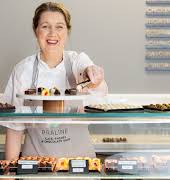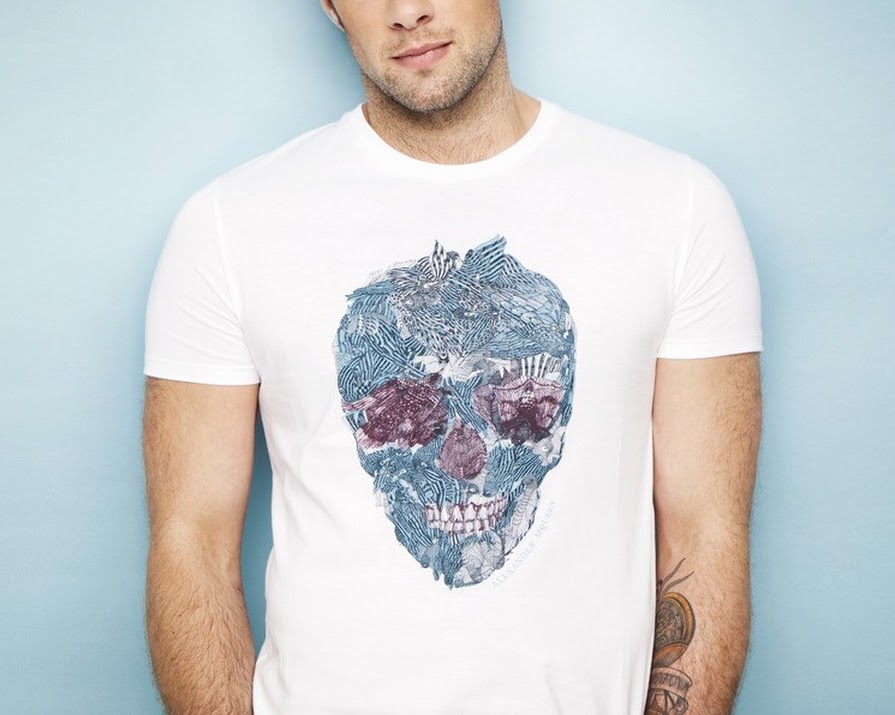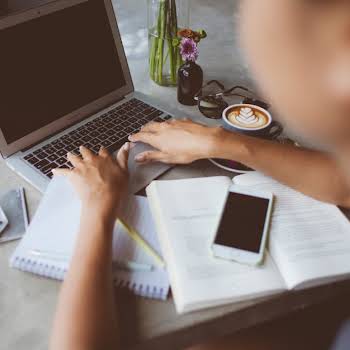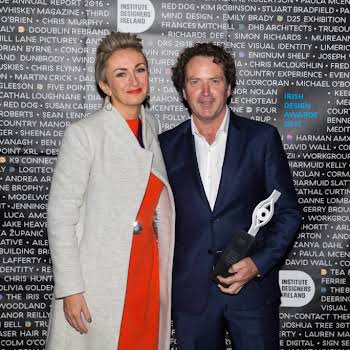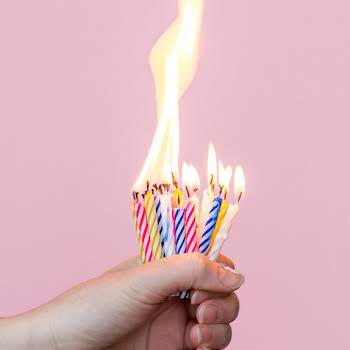
By IMAGE
19th Nov 2015
19th Nov 2015
bressie
With today being International Men’s Day, we re-visit this interview with one of our favourite men – Niall Breslin – where he talks about anxiety and general mental fitness.
As a fellow anxiety sufferer, I’ve had the distinct pleasure of getting to know Niall Breslin not as the TV personality you know as Bressie, but the grounded, honest man who struggles with his own set of insecurities on a daily basis, just like the rest of us. Despite grappling with an issue that’s gripped more than a fair few of us, Niall has achieved a lot, demonstrating that a life with added anxiety needn’t be a life not lived, or even loved. In recent times, Niall has become Ireland’s unofficial poster boy for all things wellness. And before anybody suggests that this may be a convenient tool for increased media exposure, let me assure you that this is not the case; he cares, a LOT. What’s more, when you read his book, you’ll soon realise that there’s no way somebody could make this stuff up; it’s tough going. Devoting hours of his time to respond to fans who email him on a daily basis, finding themselves in similar anxiety-ridden predicaments, Niall simply won’t stop until Ireland’s attitudes towards mental health, or ‘mental fitness’ as he likes to call it, has changed drastically for the better. Mental health awareness needs to be prioritised in our formative years at school, right through to adulthood. No longer should it be a conversation reserved for those who are diagnosed with some or other issue; mental fitness is for everyone.
You’ve become synonymous with wellness in Ireland, do you feel a huge responsibility to encourage people to look after their mental and physical health?
I think it’s critical that you look after your own wellness first. I have been in a position over the last few years where I forgot to do this and have since made a promise to myself to be hugely self-aware of my own mental health. It’s the oxygen mask theory. It’s important to point out that I am not a qualified health care professional, so I don’t try and advise people on things that I am not qualified in, I just try to make people feel okay about seeking help.
Do you think wellness in Ireland is more of a trendy topic right now or are we really taking it seriously?
There are certainly people just ticking boxes when it comes to wellness, but I like to look deeper than that. We have just come through a seriously tough few years, and although we constantly talk of an economic recession, it was much more of a human recession. For years, due to many reasons in this country, we repressed emotions and acted like robots, but I think that’s changing and that’s one of the reasons there is a hunger around topic.?Work and school awareness weeks are great, but wellness needs to be implemented at a much more profound level. It takes practise. Mental fitness, resilience and other areas take daily routines to get the best out of them. Talking for a few days every year will make people aware, but it certainly won’t improve mental fitness.
What changes have you seen over the last, say, ten years when it comes to attitudes towards looking after ourselves?
Ireland is an odd place, we went from a strict Catholic country, into the midst of a massive economic boom, all in the space of a few years. I feel that although we have strong traditions in Ireland, our culture has been sacrificed on too many occasions. The Celtic Tiger really brought the worst out in some sectors of society, and I feel it has taught us a lot about ourselves.
During those years, admission of vulnerability or other emotional issues were?judged with a careless stigma, and I definitely see changes in that regard in the last few years. It must be promoted.
Have we a long way to go? What would you like to see improve?
I am not sure how far we have to go, as I am not sure where it is we are trying to get to. The stigma around mental illness first and foremost has to change. We need to perceive mental illness in exactly the same way we perceive any other illness. Can you imagine, God forbid, having Cancer and being afraid to seek help through fear of judgement from your peers, loved ones or colleagues? There are thousands of people in Ireland who are struggling so much yet they won’t seek the help they need.?As a mental health campaigner, if I am being asked to promote help-seeking behaviour, then the services have to be there and quite frankly, as it stands, they just aren’t. We have some amazing charities and awareness groups saving lives up and down the country and health care professionals doing their best with the resources they have but I would be lying if I said our services are adequate for the demand. The problem is when I speak of this, it becomes a political head hunt, and that is the last thing I want to do. It’s far from black and white and it’s going to take a serious amount of cohesive and passionate work to get them to the level they need to be at. It’s not just about money, it’s about access to resources.?I also feel the media have huge part to play and in respect to the Irish media, they have been amazing with me. They want to engage with the topic, after all they have sisters, brothers, mothers and fathers affected by it too. My only wish is they continue to do so, as I am aware they will soon grow stale about me going on about it.
Never. If you could go back and give your 14-year-old self one piece of advice or reassurance, what would you say?
I would tell myself how normal this really is, how many people are affected, and I would tell myself the countless things I can do to help myself deal with it. This is why I feel our education system holds the key. As I said, not in awareness weeks, or programmes, I mean curriculum change, aimed at developing the human side of pupils.
Your own struggles with anxiety are not necessarily in the past, you say you still deal with it, but you’re probably the most experienced person when it comes to managing it, what do you do on a daily basis to keep yourself in check?
Yes, I do still live with my issues, but in a much more controlled and manageable way, and in fact in a way that motivates and drives me to do others things I probably wouldn’t do otherwise.?The way I deal with it, may not translate exactly to others but in general I look at my diet. The foods you put into your body are key. We should not be so naive to think that what we put into our body does not affect us mentally. I eat fish oils, magnesium supplements, L-theanine supplements. I avoid processed foods and in general I avoid alcohol.
I practise mindfulness on a daily basis. Mates of mine get pissed off with this if it doesn’t work asap; it takes time. Stick with it and in a few weeks down the line you will start to get it. It’s like washing the mind out. Download Headspace app and use it. It’s brilliant. Also, contact your GP, they are the gatekeeper to your wellness. A good GP will explore all options available to you, once you are open and honest with them. Self-medication is not advisable. I went down that route, became addicted to sleeping pills and found it incredibly difficult to come off them.?Exercise for me is critical. If I feel acutely anxious I will run, and 9/10 it goes away.?I practised CBT for quite a while now and it’s another saviour for me.
CBT worked wonders for me too. As you mention, people tend to get very frustrated when it comes to meditation, thinking that it’s not working or that they’re doing it wrong. What would you say is important to be mindful of here?
Medication is a tough one. Many people are wary of it. There have been huge advances in anti-depressant medication in recent years and for me to give advice on it would not be right as I am not a qualified doctor. In my case, I was on anti-depressants for quite a few years, under the watchful and supportive eye of my GP, who monitored my dosage and my reactions carefully. I tailored my dosage over months to get it right and was constantly aware of myself. I am now thankfully in a place where I feel I don’t require them, but I still communicate with my GP on how I am feeling.?On the other hand over the years I abused benzodiazepines (valium, xanax etc.) and sleeping pills without consent or knowledge of my GP. This is not sustainable or advisable behaviour. It was careless and even though I knew the addictive nature of such drugs I still abused them. It was tough removing them from my life, but I found more healthy alternatives such as magnesium supplements and L-theanine.?I think the first port of call perhaps for a few doctors is these drugs, and I don’t agree with them for a long term strategy for treatment. It’s usually a combination of many treatments that will get best results.
We’ve spoken before about how it’s not just those having a hard time that need to be educated, but everyone, especially those who feel totally fine. Do you think those who aren’t suffering are now paying attention and taking measures to avoid falling into any dark places?
As I said it’s all about mental fitness. We will all experience trauma, crisis, death and other issues in our lives, but how many of us are armed with the coping strategies to deal with them when they happen? We can all be better people, friends, husbands, wives, brothers, sisters, colleagues, etc. I can’t over-emphasise enough how important it is to invest in your mind. Some guys and girls spend more money on gym memberships, nights out; clothes etc. than they do on their mind. The mind is the mothership; all else is just a sideshow, invest in your mind. Don’t see therapy as something for sick people, see it as going to the gym for the mind. Engage with CBT, Mindfulness, etc? you will be surprised what it will do for you, but be patient.
You’ve written a book that we can’t wait to get our hands on, we know you’ll be nothing but honest throughout, what do you hope people take from your book?
I wanted to be careful about not writing an autobiography. That is not what I wanted to do. I want to highlight to people the mistakes I made when it came to my mental health and how it could have been much better managed if I possessed the coping mechanisms I have now. I look at the education system, workplace, careers, relationships and show how my illness controlled all of these until I took control back. It was the toughest thing I ever had to do, I had to bring back some fairly painful memories. The book certainly does not put bells and whistles on mental illness, and I don’t like the ?Everything will be okay? line. It’s hard, it’s hard as f*ck, but it’s something that can be dealt with when we have support. I just want people not to feel worried about seeking the support that could, in some cases, save their lives.
What was the hardest thing about writing ‘Me And My Mate Jeffrey’?
On one hand it’s therapeutic, and, on the other hand, it’s frightening. I don’t hold back in this book. It’s incredibly exposing. I am quite a private person putting their most difficult moments on paper, but as a 15-year-old, I really wish someone would have done the same, so I didn’t feel so alone and isolated. I think there is a bigger picture here, and I have grown comfortable about my own story now, so hopefully it can help some 15 year old who reads it, and gives them the strength to get help.
You’ve achieved so much despite your struggles along the way, and you’ve inspired so many people, if you could say one thing to anybody hiding away feeling unconfident and as though they’ll never get where they want to get because of their fears and insecurities, what would it be?
I am not going to tell them that everything will be okay, that it all becomes easier, because that’s a statement I can’t back up, but for me I believe people who deal with issues like this have an edge. You have an inner resilience that will one day allow you to do things you could never have imagined. It takes time to find it. Dedicate your life to taking back control, dive into every therapy, try everything. Some will work, others won’t but be patient, and the only way you can be patient is if everyone around you knows about it. Don’t hide it.
That’s a very refreshingly positive way to look at it. People who go through hard times seem totally against themselves, as though they are trying to change it and run far away from it, what would you like to say about acceptance?
I gave my depression a name, Jeffrey, and for years I ran away from him, ignored him, disguised him, resented him, but now I meet him half?way. I spent the last five years of my life finding out what he loved, and I do lots of that, and avoiding what he hated. He is now my greatest ally, and he has got me through some seriously tough challenges. I worked on my mental fitness for years, and now I can say with complete confidence I am one of the most mentally strong people I know. Yes, it bites back sometimes, but sometimes I get the flu or a bug, it’s normal. Do everything in your power to get to know your Jeffrey.
I might name mine Frances. So what are your plans for the coming years?
Honestly, I don’t know. I have so many passions, and I am not going to get tied down to just one. People always tell me to focus on one thing, but I can’t. I love music, sport, TV, radio, books, social work, etc? I think people conform too much when it comes to what you want to do. Do anything that makes you happy. At the risk of sounding like Oprah Winfrey, enjoy the journey and don’t get so caught up by the destination.









